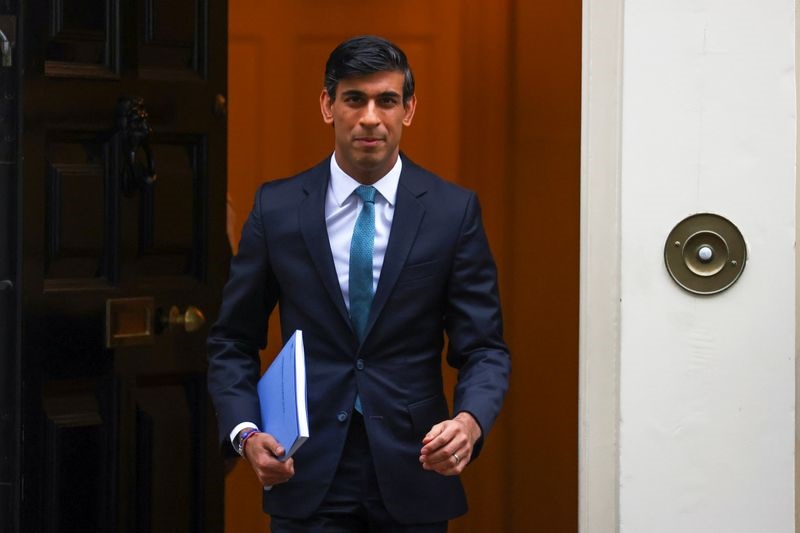LONDON (Reuters) - A one-off wealth tax might be a way for British finance minister Rishi Sunak to plug the huge hole in the country's public finances caused by the COVID-19 pandemic, an influential lawmaker said on Monday.
Mel Stride, chair of parliament's Treasury Committee, said other countries such as France and Switzerland had introduced wealth taxes only to row back on them later.
"I think what might be more promising in terms of effectively raising more tax might be a one-off wealth tax," Stride told Times Radio.
"So I think that is probably nearer the end of the spectrum of the possible-stroke-question mark-desirable than an annual wealth tax," he said.
However, British media reported last month that Sunak told supporters that a one-off wealth tax would go against his Conservative Party's values.
Sunak's emergency spending and tax cuts are set to cost more than 280 billion pounds ($389 billion) in the 2020/21 financial year, saddling the country with its biggest-ever peacetime budget deficit.
He is due to announce his next spending and tax plans in a budget statement on March 3.
A group of three economists, including an advisor to the UK Treasury, published a report in December recommending a one-off tax on assets including property as a way to raise 260 billion pounds.
The estimate by the Wealth Tax Commission was based on the tax applying to everyone with individual wealth above 500,000 pounds - or 1 million pounds for a couple - and charged at 1% a year for five years.
Raising that amount of revenue through more traditional taxes would require big hikes in income tax and value-added tax which were ruled out by British Prime Minister Boris Johnson before his 2019 election victory, the commission said.
Parliament's Treasury Committee has no formal role in proposing economic policy decisions.
It is aiming to publish a report on wealth taxes before Sunak's budget statement next month.
On Monday, it published a report urging the government to set out the criteria for how and when it will lift its COVID-19 restrictions on the economy as well as modelling to show the economic costs and benefits of the restrictions.
Johnson will this week judge how fast England can exit its lockdown but the death toll and hospital admission numbers are still too high, Health Secretary Matt Hancock said on Monday.
($1 = 0.7200 pounds)
